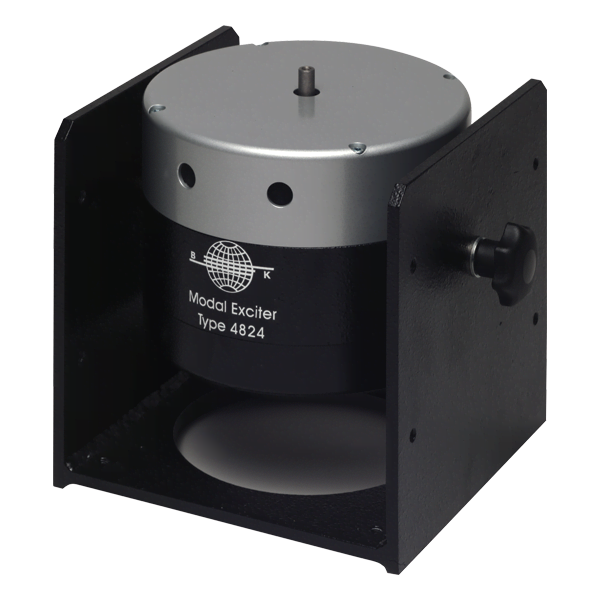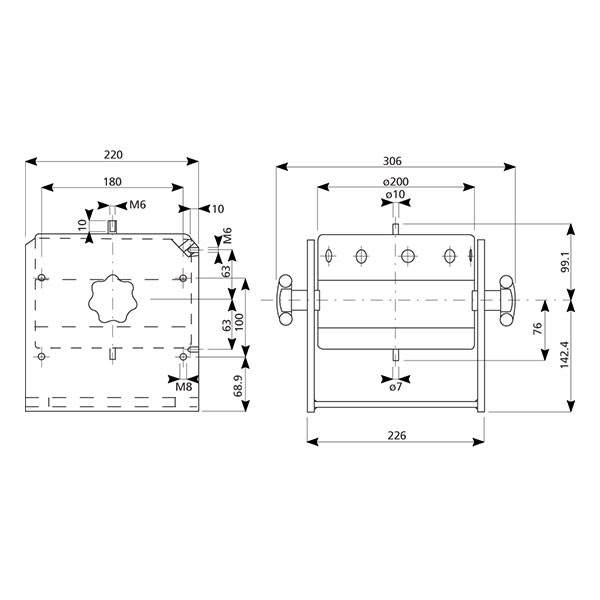Type 4824
Lightweight Modal Exciter
A compact and lightweight modal exciter with a force rating of 100 N (22 lbf), Type 4824 is ideal for high-precision, single- or multi-point excitation of a range of payloads, from automotive powertrain and drivetrain components to large and very large structures.
問い合わせ・見積依頼Powerful despite its small dimensions, Type 4824 Modal Exciter is built to offer versatility and reliability in challenging modal applications, including SISO and SIMO tests of mechanical components, such as engines, as well as MISO tests of large structures.
Suitable for impulse, sine and random signals, this modal exciter also features a wide frequency range (DC – 5000Hz) and up to 25.4 mm (1 in) of displacement for improved performance at low frequencies.
USE SCENARIOS
- General mechanical mobility measurements
- Experimental modal analysis, including long-duration testing of mechanical structures
- Single- and multiple-point excitation and response modal analysis applications, including SISO, MISO, SIMO and MIMO test configurations
- Advanced structural dynamics investigations
- Structural damage detection
- Finite element model (FEM) or finite element analysis (FEA) correlation
CHARACTERISTICS
Designed using rare-earth neodymium technology, this exciter has a high force-to-weight ratio, allowing it to deliver random and sine forces up to 70 and 100 N (15 and 22 lbf), respectively, without external cooling.
Type 4824 incorporates a low-mass, high-rigidity armature made of magnesium and suspended on springs, which minimizes force drop-offs at resonant frequencies and improves the quality of force measurements. A built-in optical sensor accurately controls the position of the armature.
A rectilinear guidance system, comprised of four upper and four lower radial flexures, keeps the driver coil centred, enhancing stability during operation. In torsion and in the transverse directions, the flexure system affords high stiffness to counteract rotational motion of the DUT (device under test). This feature also allows the exciter to absorb lateral forces without damaging its internal construction.
Stingers, or quills, are used in modal testing to impart forces to the device DUT with minimal interference from the exciter. All our modal exciters feature a through-hole design that simplifies setup when operating with stingers. Tension- or piano-wire stingers can be easily installed using collet chucks; push-pull rods are attached with M6 to 10–32 UNF threaded inserts.
Modal Exciter Type 4824 can be supplied as a stand-alone unit (mounted on a trunnion) or as a complete system that also includes a matching 120 VA amplifier, a standard set of stingers and all necessary cables.
ADDITIONAL CAPABILITIES
To better suit your specific needs, all of our modal exciters can be outfitted with a number of optional accessories: push-pull rods and tension-wire stingers, lateral exciter stands, electronic DC controls for stinger pre-tensioning, turnbuckles, chuck-nut attachments, cable extension kits and adaptors.


